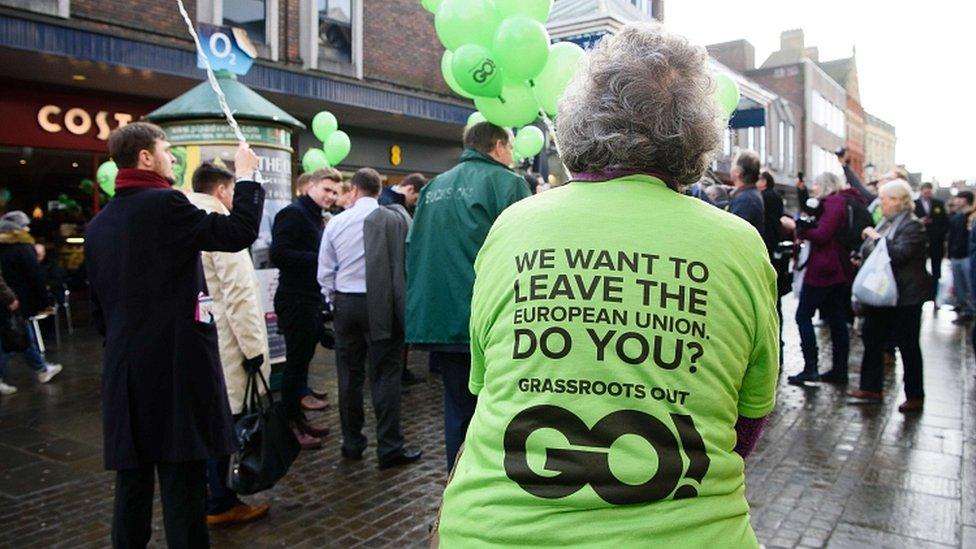EU reform will not deter UK-bound migrants - Jose Manuel Barroso
- Published
Ex-European Commission president says availability of jobs is more important
Cutting benefits for new EU migrants would not put people off wanting to move to the UK, a former European Commission president has said.
Jose Manuel Barroso said plans for an "emergency brake" on in-work benefits for migrants was a creative compromise but would not reduce immigration.
He said the EU would be "weaker" if the UK voted to leave in a referendum.
He spoke out as the six founding members of the EU recommitted to building an "ever closer union".
PM David Cameron wants EU leaders to agree to a draft package of reforms to the UK's membership this month and then hold a referendum on whether the UK stays in the EU.
Leaders will debate the proposals in Brussels on 18 and 19 February. Mr Cameron requires the approval of all 28 EU members for the package, which includes limiting in-work benefits for migrants for up to four years.
'No, frankly not'
Speaking to BBC's Newsnight, Mr Barroso described the UK as "one of the most important shareholders in Europe".
But the former Portuguese prime minister said: "The way the British look at Europe is frankly different from the way France, or Germany do.
"It is not only Britain that cares about sovereignty, we all want the rights of our country respected," he added.
He was speaking as the foreign ministers of Belgium, France, Germany, Italy, Luxembourg and the Netherlands resolved "to continue the process of creating an ever closer union".
But, reflecting the differing view in the UK, they acknowledged that not every country should have to agree.
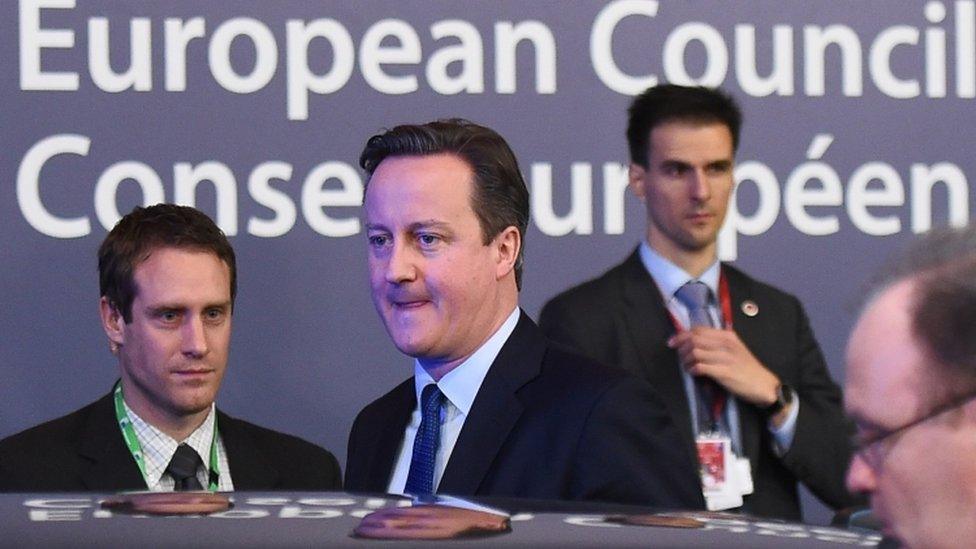
David Cameron is seeking persuade the other 27 EU leaders to sign up to the proposals
Mr Cameron says his draft deal aimed at keeping Britain in the EU would deliver "substantial change".
The deal includes an "emergency brake" on in-work benefits paid to EU migrants and paves the way for the UK's referendum to take place as early as June.
However, when asked whether the proposed measures on in-work benefits would put anyone off from coming to the UK, Mr Barroso replied: "No, frankly not."
"People who want to go to Britain, if the basic rights of the people are ensured, they will be willing to go but of course with slightly different conditions," he said.
Mr Barroso, who stood down from the European Commission last year after 10 years as the EU executive's president, said: "Everyone wants Britain to remain."
'Scandalous policy'
Reacting to his interview, a spokesman for Vote Leave - which is campaigning for the UK to leave the EU - told the BBC: "Even the EU's biggest advocate knows the PM's renegotiation is trivial.
"The final package won't bring powers home, won't cut the cost of Brussels and won't fix the fundamental flaws at the heart of the European project."
The exchanges came as the Britain Stronger In Europe campaign unveiled 30 new cross-party recruits - ten each from the Conservatives, Labour and the Lib Dems.
And in other developments on Wednesday a report by Migration Watch said that 1.8 million illegal border crossings had been recorded by the EU border agency Frontex in 2015.
'Fully compatible'
It says another three million migrants were expected over the next two years, adding that Greece and Italy "cannot possibly cope with such numbers", yet only 683 migrants have been returned.
Arron Banks, co-founder of Leave.EU, said: "This scandalous policy and security shambles demonstrates how the EU cannot control its borders and why it is heading for further catastrophe this summer."
On Tuesday papers released ahead of next week's crunch summit suggest any agreement on changes to the UK's membership of the EU would be "legally binding".
Draft conclusions of the summit, issued in advance, state any deal would be "fully compatible with EU treaties".
If Mr Cameron can secure agreement from the other 27 EU member countries, he is expected to proceed with an in-out referendum on the UK's membership by the end of June.

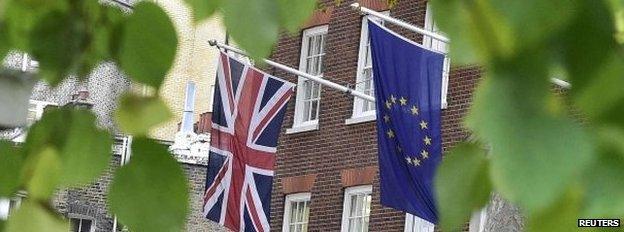
Further reading on the UK's EU referendum
Guide: All you need to know about the referendum
EU renegotiation: Did Cameron get what he wanted?
Referendum timeline: What will happen when?
The view from Europe: What's in it for the others?
- Published9 February 2016
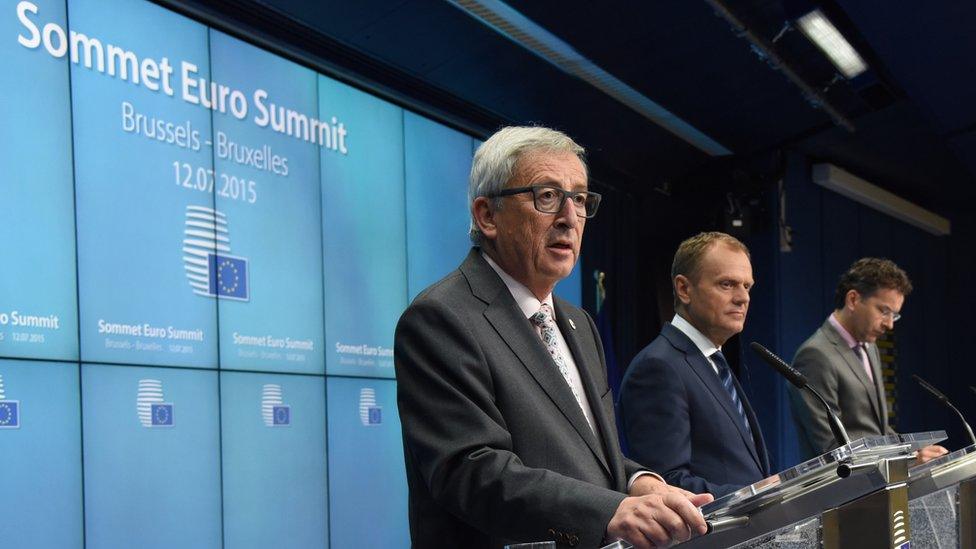
- Published8 February 2016
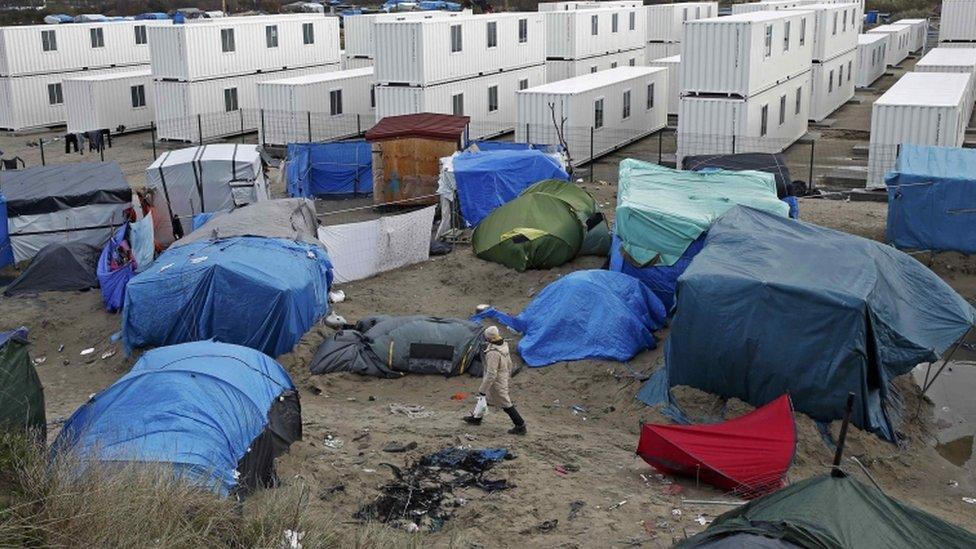
- Published30 December 2020

- Published8 February 2016
